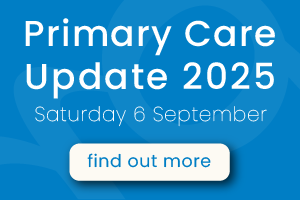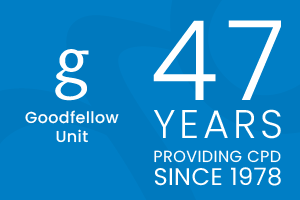From 1 May 2025, Ryzodeg® 70/30 was funded and available in Aotearoa New Zealand. It is the first ultra-long-acting insulin available on the Pharmaceutical Schedule.
This Medcase looks at the use of Ryzodeg® 70/30 in selected patients with type 1 and 2 diabetes.
Ryzodeg® 70/30 is a co-formulation of:
- Insulin degludec (70%) – ultra-long-acting basal insulin.
- Insulin aspart (30%) – rapid-acting prandial insulin.
This co-formulation allows for simplified insulin regimens in patients with type 2 diabetes, with once or twice daily dosing administered alongside the main carbohydrate-containing meal(s) using a NovoPen® device.
In selected patients, Ryzodeg® may simplify basal–bolus regimes.
Pharmacokinetics
- Degludec has a half-life of ~25 hours, providing basal coverage for > 42 hours.
- Steady state is achieved after approximately 3 days.
- This long duration necessitates caution in elderly patients and those with renal impairment, due to increased risk of hypoglycaemia.
Clint, a 52-year-old forestry worker, presents for routine diabetes review.
He was diagnosed with type 2 diabetes 9 years ago. Despite maximum tolerated doses of metformin, gliclazide, and empagliflozin, and being on 42 units of insulin glargine administered with his evening meal, his HbA1c has remained elevated at around 74 mmol/mol. His weight is 104kg.
He typically eats a large early evening meal after finishing his physically demanding shift. Clint has expressed reluctance to add further insulin injections, citing concerns about complexity and lifestyle impact. The practice nurse has been supporting him with lifestyle changes and diabetes self-management education. He recently initiated continuous glucose monitoring (CGM), which is going well.
Is Clint a candidate for Ryzodeg® 70/30?

Indications
People living with diabetes requiring basal insulin, with or without prandial insulin.
As part of a basal-bolus regimen for selected people living with types 1 and 2 diabetes.
A useful option for patients transitioning from NovoMix® 30, which is scheduled for discontinuation in late 2025/early 2026.
Ryzodeg® 70/30 may be particularly suitable for individuals who consume one main meal per day and/or where a once-daily injection regimen is preferred.
General principles
- Administer once daily with the main carbohydrate-containing meal.
- Once-daily or twice-daily regimen, depending on meal patterns.
- Sulfonylureas at the meal should be discontinued to reduce hypoglycaemia risk.
- Ryzodeg® 70/30 does not need to be mixed/inverted - it is a co-formulation rather than a pre-mixed suspension.
- Patients must receive clear dietary education: If Ryzodeg® 70/30 is administered and the meal is delayed or skipped, or unplanned strenuous exercise occurs, hypoglycaemia may result. Referral to a dietitian for carbohydrate awareness may be helpful.
- Patients need to be shown how to use the NovoPen device. Patients with dexterity and cognitive challenges may require additional support or an alternative product.
- Patient-centred lifestyle management should be continued at all stages of the glycaemic management journey.
Key points
Administer once daily with the main carbohydrate-containing meal.
Clear sick day advice and hypoglycaemia management are essential, given the long duration of action.
Provide education on how to manage hypoglycaemia, sick day management plan and diabetes and driving.
Patients living with type 2 diabetes
Ryzodeg® 70/30 can be administered:
- in combination with other diabetes medications (except sulphonylureas at a meal)
- alone
- in combination with rapid-acting insulin at the other mealtimes.
Basal insulin initiation is recommended for all patients diagnosed with type 2 diabetes presenting with significant hyperglycaemia at any stage, including:
- at diagnosis (e.g. HbA1c > 90)
- if glycaemic targets are not met despite maximal non-insulin therapy and lifestyle support.
Ryzodeg® 70/30 is a good option for those whose HbA1c is above target despite basal insulin, or may be used first-line instead of other intermediate or long-acting insulins.
Ryzodeg® 70/30 may be used to replace Novomix 30, which will likely be discontinued by the end of 2025/early 2026.
Refer to NZSSD guidelines for further details on type 2 diabetes management.
Initiation of insulin with Ryzodeg® 70/30 in type 2 diabetes
For insulin naive patients, the registered starting dose of Ryzodeg® 70/30 is 10 units once daily with the main meal, followed by individualised dosage adjustments.
While the MedSafe datasheet currently recommends a starting dose of 10 units, the national diabetes guidelines recommend a weight-based starting dose, with adjustments made for contextual factors such as hypoglycaemia risk, degree of glycaemic control, meal size and timing, and co-morbidities. These factors must be balanced with the potential for hypoglycaemia:
- 0.2 units/kg/day if HbA1c > 64 mmol/mol + BMI > 18 kg/m2
- 0.1 units/kg/day if HbA1c < 64 mmol/mol OR BMI < 18 kg/m2OR elderly OR renal or hepatic impairment.
Titrate the dose according to self-monitored blood glucose readings, aiming for agreed glycaemic targets and adjusted as needed based on clinical judgement.
|
Clear instructions for patients on how to administer insulin
(From Premixed and co-formulated insulin - New Zealand Society for the Study of Diabetes) |
Transitioning from other insulins (type 2 diabetes)
From once-daily basal or premixed insulin:
- Switch unit for unit.
- Administer once daily.
- Ensure timing is just before the main meal to reduce the risk of hypoglycaemia.
A key consideration for patients on larger doses of basal insulin is to reduce to 0.5 units/kg/day equivalent.
Example
Your patient weighs 100kg and takes 80 units of glargine insulin daily. Reduce total basal insulin to 0.5units/kg/day. This equates to 50 units of Ryzodeg® 70/30, administered with the largest meal.
It is important to consider whether 15 units of rapid-acting insulin (30% of 50 units) is appropriate for their meal size.
From basal–bolus regimen:
- A quick method is to calculate based on total basal insulin.
- Ryzodeg® 70/30 replaces basal component.
- Some patients may require more insulin at that meal, so be prepared to up-titrate or adjust based on individual patient factors.
- For patients taking larger doses of basal insulin, reduce to 0.5 units/kg/day equivalent.
- Maintain separate rapid insulin for remaining meals, this may need to be adjusted.
- Doses need to be converted/adjusted based on individual needs.
Example
Your female patient weighs 78 kg and is currently taking 36 units of glargine insulin with her evening meal, along with 6 units of rapid-acting insulin at breakfast, lunch, and dinner. Her main meal is dinner. Her HbA1c is 68, fasting glucose 11 mmol/L, and 2 hour post-meal glucose 11-16 mmol/L.
You convert her to 36 units of Ryzodeg® 70/30 at dinner, discontinuing both the glargine and the rapid-acting insulin previously taken at that time.
Note that with this approach you have replaced 36 units of basal insulin and 6 units of rapid insulin with Ryzodeg 36 units. This equates to 25 units of basal insulin and 3.6 units of rapid insulin. Careful monitoring and adjustment is required to avoid underdosing and deterioration in control.
You advise her that her rapid-acting insulin doses at breakfast and lunch should be continued, but may need to be reviewed and adjusted depending on her blood glucose readings.
If she has a large breakfast and a large dinner, an alternative approach may be splitting the Ryzodeg®, administering Ryzodeg® 18 units with breakfast, and 18 units with dinner, discontinuing the rapid insulin with those meals, maintaining rapid insulin with lunch. Contact with the practice nurse is arranged for the following week.
As with all insulin products, close monitoring is required during transition and throughout the early post-transition period.
Further guidance on insulin regimens is available from NZSDD, including bolus dose adjustment.
For elderly patients and those with renal or hepatic dysfunction, a start-low, go-slow approach with intensified monitoring is advised.
Other glucose-lowering therapies may need to be adjusted.
|
Transferring from other insulin products and titration (type 2 diabetes)
Dose adjustments can be made every 7 days if needed. In some cases, more frequent changes may be appropriate, but no sooner than every 3 days, as it takes at least 72 hours for the full effect of a dose change to be observed. (From Premixed and co-formulated insulin - New Zealand Society for the Study of Diabetes) |
Monitoring and titration (type 2 diabetes)
- Monitor pre-meal and postprandial (2–3 hour) glucose.
- Adjust dose by 2 units or 10% of total dose if post-meal glucose increases > 3 mmol/L and fasting glucose > 10 mmol/L.
- Titrate every 3–7 days based on consistent readings.
- Once stable on the new regimen, repeat HbA1c after 3 months.
Patients living with type 1 Diabetes
An initial starting dose of 0.2 units/kg/day, administered as Ryzodeg® 70/30 with the main meal and supplemented with rapid-acting insulin at other meals, is a reasonable and commonly used approach in clinical practice.
The New Zealand Medsafe datasheet currently recommends that the starting dose of Ryzodeg® 70/30 should comprise 60–70% of the total daily insulin requirement, with the remainder provided by a rapid-acting insulin at other meals if needed.
Dose adjustments should be individualised based on patient needs and dietary requirements.
Specialist guidance may be required.
Clint’s management plan
Clint’s goal is to simplify his insulin regimen while improving his glycaemic control. He is a suitable candidate for Ryzodeg® 70/30 due to his regular evening meal pattern and reluctance to add further injections. He has normal renal and hepatic function.
- Clint’s case reflects a common scenario: suboptimal glycaemic control on basal insulin alone, with patient reluctance to adopt a more complex basal–bolus regimen.
- He has a consistent large evening meal, making him a good candidate for Ryzodeg® 70/30.
- Clint’s sulfonylurea (eg. gliclazide) should be stopped when initiating a premixed or co-formulated insulin to reduce hypoglycaemia risk.
- Ryzodeg® 70/30 offers a pragmatic option: it provides basal and prandial coverage in a single injection, simplifying his regimen while intensifying therapy.
- You switch Clint from glargine to Ryzodeg® 70/30, using a unit-for-unit conversion: start at 42 units once daily with his main evening meal.
Note: Clint has a substantial carbohydrate-containing meal at 6:30 pm. A dose of 42 units of Ryzodeg® 70/30 delivers approximately 13 units of rapid-acting insulin. In patients consuming smaller or less predictable meals, this may increase the risk of hypoglycaemia. Where meal composition is variable or uncertain, consider initiating at a lower dose or selecting an alternative therapeutic strategy.
Your clinic provides structured education on the following topics:
- Insulin administration and use of the NovoPen®.
- Timing of carbohydrate-containing meals in relation to insulin.
- Recognition and management of hypoglycaemia and sick days.
- The importance of rotating insulin injection sites.
- Driving and diabetes.
Titration:
- Use CGM data to support shared decision-making and guide titration.
- Titrate dose every 3 days based on fasting and post-meal readings (e.g. increase by 2–4 units if fasting glucose remains > 7–8 mmol/L).
You arrange early follow-up with the practice diabetes champion to review:
- CGM trends.
- Adherence and confidence with new regimen.
- Need for dietitian input (eg. carbohydrate awareness).
Practical considerations for all patients
Prescribe:
- NovoPen® device.
- Ryzodeg® 70/30 Penfill® cartridges (3mL).
- 4–5 mm needles.
Ensure patients have:
- Glucometer and strips or CGM.
- Education on insulin use, injection technique, sick day rules, and driving safety.
- Memory aids (e.g., NovoPen Echo®, InsulCheck®) if needed.
Currently only available with Penfill ® cartridges and NovoPen® delivery system.
Patients with visual, cognitive, or dexterity impairments may need support or alternative options.
Missed doses
- If a dose is missed, take with the next main meal that day.
- Do not double-dose.
- Resume regular schedule the following day.
Special populations
Elderly / renal impairment: May be used safely with caution; monitor closely. Start low, go slow.
Children > 6 years: May be used under specialist care; children are at increased risk of hypoglycaemia.
Pregnancy/lactation: No data available – avoid, or consult specialist.
Key points
- Ryzodeg® 70/30 is beneficial for patients living with type 2 diabetes requiring treatment intensification with one or two regular main meals.
- Ensure timing is just before the main meal to reduce risk of hypoglycaemia.
- Long half-life necessitates careful titration, hypoglycaemia education and sick day planning.
- Doses may be adjusted every 3–7 days.
This MedCase was created Dr Danuta Amelung, BHB, MbChB, FRNZCGP, AFRACMA, Dip. Paed, PGCertWHlth, PGDipTrvMed with expert review by Dr Ryan Paul, Endocrinologist and Diabetologist.
Supported with an unrestricted educational grant from
Recognition of Learning Activities
Don't forget to log your time with The Royal New Zealand College of General Practitioners portal for recognition of learning activities.



